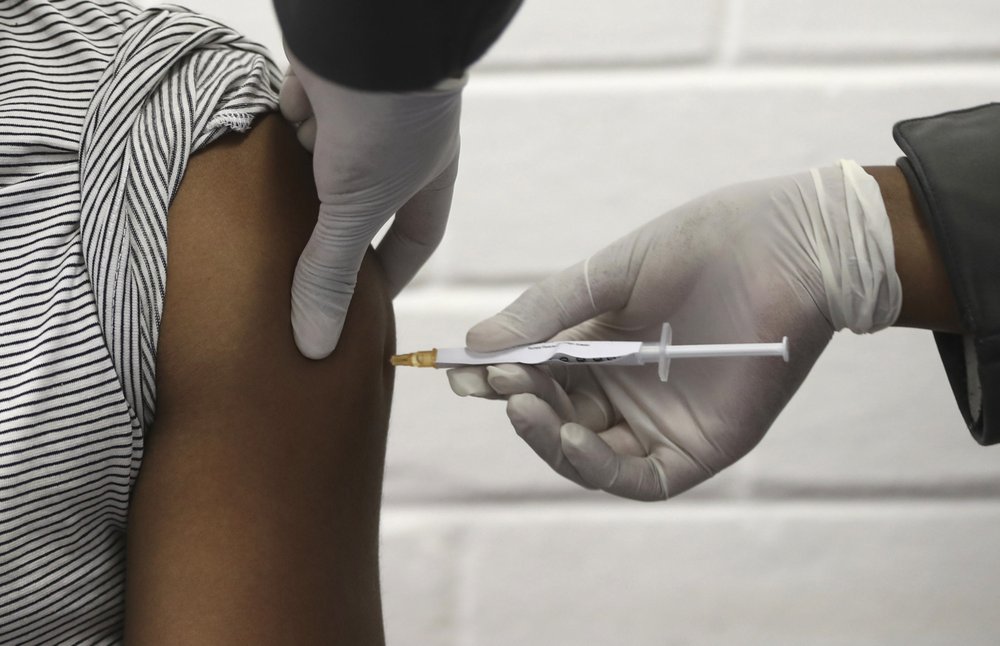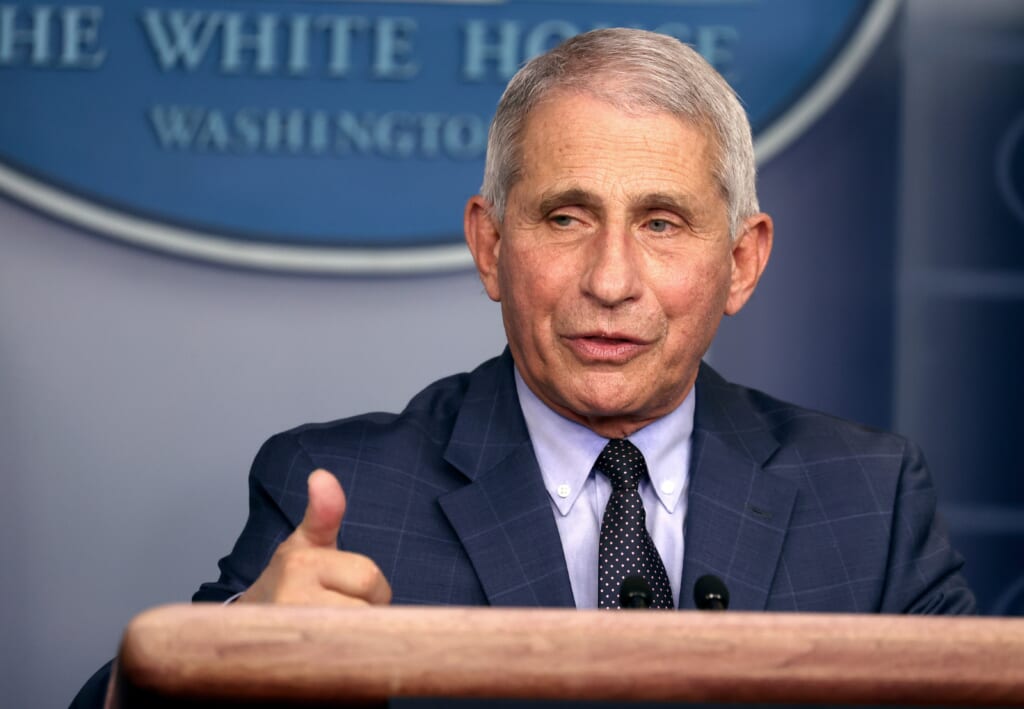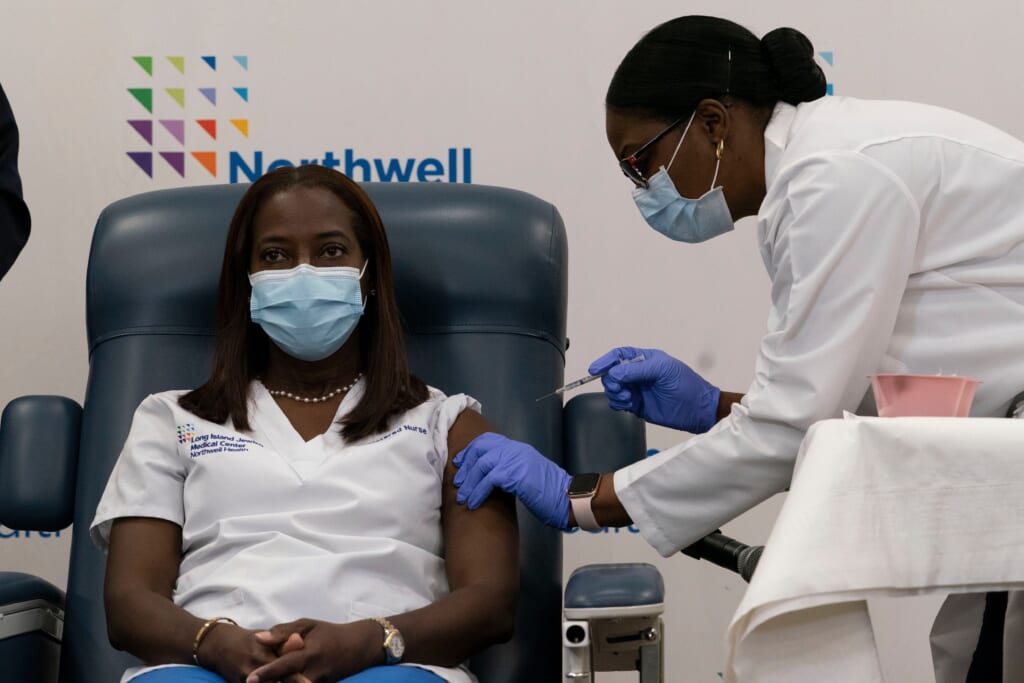The development of COVID-19 vaccine is not enough to save this nation
OPINION: Full transparency and open dialogue by both sides can help us mend the fences of American medical mistrust when it comes to vaccinations
We are on the cusp of a monumental achievement, the release of the SARS-CoV-2 vaccine, but the dark cloud of vaccine skepticism remains, serving as an even bigger threat to the nation’s health than the virus itself.
The only thing more unpredictable than viruses are people, so encouraging naysayers to get a double dose of the vaccine will be no small feat. Despite promising data that shows the vaccine to be 95 percent effective, skepticism remains understandably high, given the speed at which this vaccine has been developed.
Read More: Black critical care nurse among 1st in US to receive COVID vaccine
According to a Pew Research poll conducted from Nov. 18 to Nov. 29, 60 percent of American adults said they would “definitely” or “probably” take the vaccine when it becomes available, well below the 75 percent needed to achieve herd immunity. The outlook is even more bleak in Black and brown communities with vaccine-acceptance rates hovering around 50 percent.
Vaccine Hesitancy in the Black, Brown Community
Vaccine hesitancy in Black and brown communities stems from America’s dark history of medical racism and unequal access to care. Black and brown people often cite the 1951 story of Henrietta Lacks and the 40-year Tuskegee syphilis experiment as reasons to distrust medical research. The forced sterilization of Latina women and the nonconsensual surgeries performed by Dr. J Marion Sims on enslaved Black women, are just two examples of the hyper-experimentation on Black and brown bodies that have been common practice throughout American history. The trepidation that Black and brown people have in the U.S. medical system is not an irrational fear but a corollary of generational trauma.

The relationship between Black and Brown communities and modern medicine is tenuous at best. Based on my experience, when African Americans, Latinos and Native Americans are told to get vaccinated first, they hear “guinea pig.” Frustration sets in when these groups are told to accept medical treatments without being given an explanation of the processes and procedures that are to be performed. This creates a scenario where Black and brown people are left to fill in the blanks, spawning the conspiracy theories that litter social media today. Even worse, this now discouraged group of people become less likely to attend future medical visits and persuade others to do the same.
New Voices in Vaccine Messaging
We need the voices of Black and brown medical professionals now more than ever. Research shows that the trust between Black and brown doctors and their patients leads to better health outcomes. Studies show that communities of color are more compliant with medical treatment and more likely to access preventative services when directions are given by a healthcare professional who shares a similar racial or cultural background. New York Governor Andrew Cuomo has even insinuated that Black and brown medical professionals be the centerpiece of pro-health messaging campaigns when the vaccine is released to the public to ensure its equitable distribution.
Throughout history non-medical professionals like athletes and entertainers have served as gatekeepers to medical information. People listen to celebrities because they can connect with them, but the danger in taking medical recommendations from celebrities is that the larger and more emotional their stories become, the more likely it is that nuances will be lost and misinformation will spread.
Celebrities benefit from the halo effect — the tendency to attribute positive impressions from people you admire. This means that people may unknowingly accept misinformation because they place more trust in the celebrities they admire than their own critical thinking.

Last week, Dr. Anthony Fauci encouraged the Black community to lean on celebrities to get the message out about the vaccine. History shows that this approach has marginal returns at best. A tactical, innovative, and thoughtful pro-vaccine messaging campaign, spearheaded by medical professionals, that meets people where they are, is needed to ease the concerns of Black and Brown Americans. Well intentioned celebrities cannot answer specific medical questions. They cannot confirm or refute information with evidence-based science. They are not equipped to do the job of healthcare professionals. To defeat the coronavirus pandemic we need a messaging campaign that looks nothing like the ineffective celebrity-driven campaigns that we’ve used in the past. We simply cannot afford to go about this the wrong way given how deadly the virus has been in our communities.
How the SARS-CoV-2 Vaccine Works
As vaccine hesitancy looms, the battle to get the community informed and vaccinated wages on. Answering questions about the vaccine in churches, town hall meetings, and on social media via livestream formats on Twitter, Instagram and Facebook can go a long way in alleviating the public’s concerns.
One of the questions that I get asked most often is how the coronavirus vaccine works. The short answer is that the vaccine unlocks the body’s natural defense system.

The Moderna and Pfizer vaccine candidates consist of saline and messenger RNA (mRNA) surrounded by a fatty layer. The vaccine’s mRNA contains instructions that tell the body to make non-infectious coronavirus spike proteins. These proteins kick off an immune response that generates antibodies against COVID-19, which are stored throughout the body for future use. If the body comes into contact with the virus it releases these antibodies, fighting off the disease and avoiding serious illness.
Read More: Trump says he’s nixing plan for early vaccine at White House
Trusting the Medical Community Again
The hate filled rhetoric between pro and anti-vaccine groups predates the pandemic, in part due to the deep class divisions that exist between the two groups. This needs to change. The need for widespread vaccination is on par with the need for meaningful conversation between pro and anti-vaccine groups.
The reconciliation between marginalized communities and modern medicine won’t happen in a day, month or year, but if we don’t begin the process today we will continue to suffer huge losses. Full transparency and open dialogue by both sides can help us mend the fences of American medical mistrust. Whether you choose to take the vaccine or not let’s use this moment as an opportunity to work together and take the first step towards rebuilding trust with the medical community.
Have you subscribed to theGrio’s new podcast “Dear Culture”? Download our newest episodes now!
TheGrio is now on Apple TV, Amazon Fire, and Roku. Download theGrio today!
